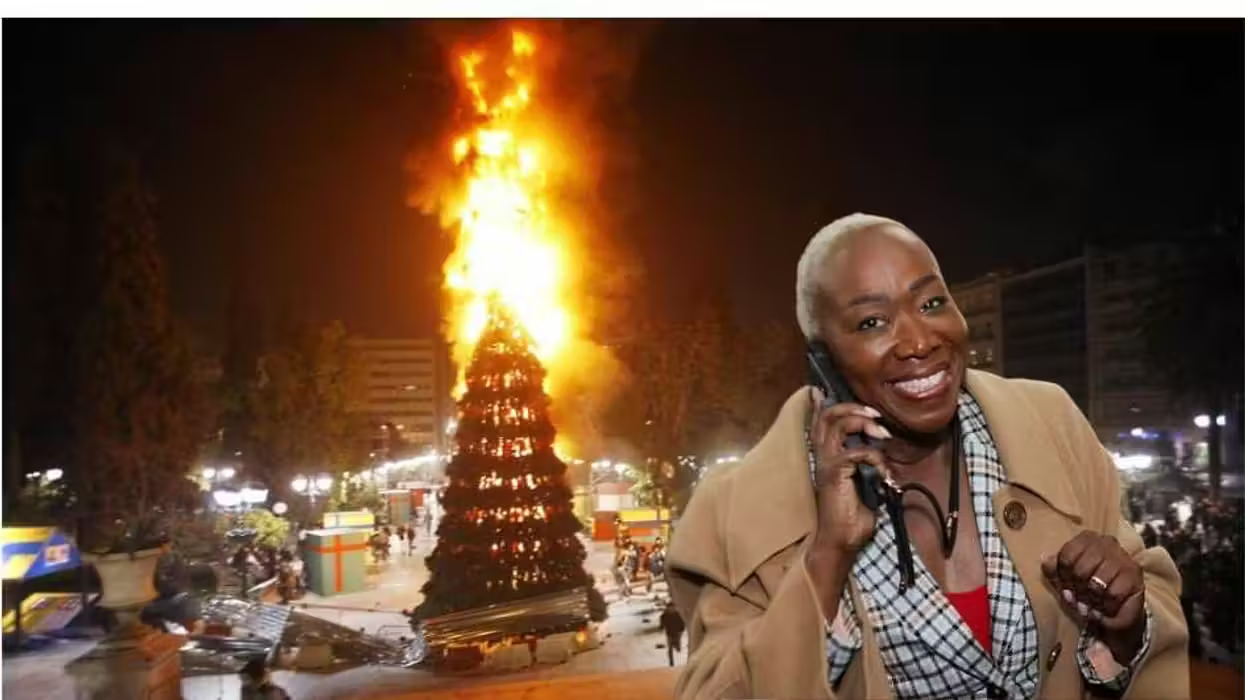 Kids play on flooded Ninth Street alongside North Boulder Park September 12, 2013 in Boulder, Colorado. (Credit: Getty Images)
Kids play on flooded Ninth Street alongside North Boulder Park September 12, 2013 in Boulder, Colorado. (Credit: Getty Images)
Story by the Associated Press; curated by Dave Urbanski
BOULDER, Colo. (AP) — Special education teacher Brian Shultz, 38, was torn about leaving his home in the face of Colorado's devastating flood.
"I was thinking about staying. I could have lasted at least a year," he said. "I have a lot of training in wilderness survival."
Schultz added that he probably had enough beer to last the whole time as well.
As he sat outside a makeshift shelter at a high school, Shultz floated the idea of walking back into his funky mountain community of Jamestown.
"If we hike back, I would stay there and just live," he said. "I'd rather be at our own house than staying at some other people's houses."
 The Summit County Rescue team works to save Suzanne Sophocles, center, from her severely flooded home Friday, Sept. 13, 2013 in Boulder, Colo. (Credit: AP)
The Summit County Rescue team works to save Suzanne Sophocles, center, from her severely flooded home Friday, Sept. 13, 2013 in Boulder, Colo. (Credit: AP)
His wife, Meagan Harrington, gave him a wry smile. About 10 of their neighbors declined to evacuate, she said.
"They said they wouldn't force you, but it was strongly encouraged," she said.
Shultz teared up behind his sunglasses as he compared his situation to that of his neighbors.
"At least all of our stuff's there and will be there when we get back. The people right by the river, their houses were washed away. Other people thought their houses were going to be okay, and then they started to go. It's just really devastating."
As rescuers broke through to flood-ravaged Colorado towns, they issued a stern warning Saturday to anyone thinking of staying behind: Leave now or be prepared to endure weeks without electricity, running water and basic supplies.
National Guard helicopters and truck convoys carried the admonition into paralyzed canyon communities where thousands of stranded residents were eager to escape the Rocky Mountain foothills. But not everybody was willing to go. Dozens of people in the isolated community of Jamestown wanted to stay to watch over their homes.
Authorities made clear that residents who chose not to leave might not get another chance for a while.
"We're not trying to force anyone from their home. We're not trying to be forceful, but we're trying to be very factual and definitive about the consequences of their decision, and we hope that they will come down," Boulder County Sheriff Joe Pelle said.
 Residents of an apartment house work to divert flood water from their building in Boulder, Colo., on Thursday, Sept. 12, 2013. Flash flooding in Colorado has cut off access to towns, closed the University of Colorado in Boulder and left at least three people dead. (Credit: AP)
Residents of an apartment house work to divert flood water from their building in Boulder, Colo., on Thursday, Sept. 12, 2013. Flash flooding in Colorado has cut off access to towns, closed the University of Colorado in Boulder and left at least three people dead. (Credit: AP)
Across the foothills, rescuers made progress against the floodwaters. But they were still unable to go up many narrow canyon roads that were either underwater or washed out.
On Saturday, the surge of water reached the plains east of the mountains, cutting off more communities and diverting some rescue operations.
Four people have been confirmed dead since the harrowing floods began Wednesday. And hundreds of others have not been heard from in the flood zone, which has grown to cover portions of an area nearly the size of Connecticut.
 Rescuers walk across a debris-filled bridge after saving four separate people from flooded homes, Friday, Sept. 13, 2013 in Boulder, Colo. (Credit: AP)
Rescuers walk across a debris-filled bridge after saving four separate people from flooded homes, Friday, Sept. 13, 2013 in Boulder, Colo. (Credit: AP)
Some of those who are unaccounted for may be stranded or injured. Others might have gotten out but not yet contacted friends and relatives, officials said.
But police expected to find more bodies as the full scope of damage becomes clear.
A woman was missing and presumed dead after witnesses saw floodwaters from the Big Thompson River destroy her home in the Cedar Cove area, Larimer County sheriff's spokesman John Schulz said.
"I expect that we're going to continue to receive reports of confirmed missing and confirmed fatalities throughout the next several days," he said.
The military put more troops on the ground and helicopters in the air to aid in the search-and-rescue effort. More rain was in the forecast.
By midday Saturday, nearly 800 people and their pets had been evacuated, National Guard Master Sgt. Cheresa Theiral said. More than 700 people spent Friday night in shelters, according to the Red Cross.
Terry Kishiyma's son flagged down a helicopter with his shirt after a three-day wait for rescue from a neighbor's house on higher ground.
"You could hear the choppers for miles and miles, but I didn't know if they were evacuating people. You see a chopper going down behind a ridge, and you have no clue," Kishiyma said.
In addition to his son's efforts, Kishiyma said his wife shouted at the chopper, "We have babies!"
Above the plains of Larimer County, rescue crews planned to fly as many missions as possible while skies were clear. Crews used inflatable boats to pick up families and pets from farmhouses. Some evacuees on horseback had to be escorted to safe ground.
 Colin Dinsmore, of Summit County Rescue, center, carries a dog on his shoulder after rescuing 3 people, 5 dogs and 2 cats from a flooded home, Friday, Sept. 13, 2013 in Boulder, Colo. (Credit: AP)
Colin Dinsmore, of Summit County Rescue, center, carries a dog on his shoulder after rescuing 3 people, 5 dogs and 2 cats from a flooded home, Friday, Sept. 13, 2013 in Boulder, Colo. (Credit: AP)
Near Greeley, 35 miles east of the foothills, broad swaths of farmland had become lakes, and the raging South Platte and Poudre rivers surrounded more homes.
For those awaiting an airlift, Guardsmen dropped food, water and other supplies into the winding, narrow canyons. With supplies dwindling, residents of Lyons barbecued their food before it spoiled.
In one Boulder neighborhood, residents turned back city crews and machinery that arrived to remove the makeshift berms and sand-filled trash bags used to protect their homes. University of Colorado students helped as homeowners improvised to divert the rising water from Gregory Creek.
"The residents know better than anybody else how the water flows through the neighborhood," said Colleen Scanlan Lyons.
Here's a report from KYW-TV:
--
[related]

 Kids play on flooded Ninth Street alongside North Boulder Park September 12, 2013 in Boulder, Colorado. (Credit: Getty Images)
Kids play on flooded Ninth Street alongside North Boulder Park September 12, 2013 in Boulder, Colorado. (Credit: Getty Images)






